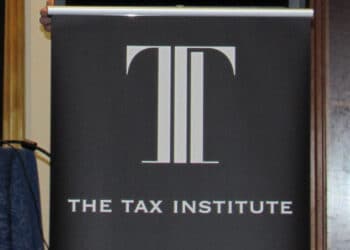Speaking at a recent Tax Institute event BDO partner, superannuation, Shirley Schaefer said private equity valuations had been one of the top SMSF audit issues for the 2021 income year.
Ms Schaefer said private equity could be a trust, a company, a property entity, an investment entity, or it could be an operational entity.
While the auditor is not obliged to audit the underlying company or trust, sufficient audit evidence is still required for the auditor to be able to form an opinion that the market value of the fund’s investment in these entities is at market value, Ms Schaefer explained.
“For those entities that are property holding/ownership entities, the valuation considerations and audit evidence are generally similar to those for direct property ownership. This is because the value of these investments is likely to be substantially driven by the value of the underlying assets,” she said.
“[However], with operational entities, the underlying assets may not be what actually drives value. With these sorts of investments, it’s really ‘how long is a piece of string?’. There’s so many different variations and permutations in what these entities do that they can cause some difficulty.”
The other issue that arises with private equity investments, said Ms Schaefer, is in-house assets and understanding whether there is an exemption to the in-house asset rules for this particular investment.
“We all know that if it was a pre-1999 investment, it’s potentially exempt from the in-house asset rules. If it’s an ungeared trust or company that is a property entity, they can also be exempt but [you need] evidence. You need to be able to substantiate the exemption,” she explained.
“I’m seeing some issues in the 2021, particularly where auditors have changed, there may have been some previous history with the auditor that has known about the fund or worked on the fund for a number of years and when it comes to sending the fund off to a new auditor, [it’s difficult] to put your hands on the evidence to support that exemption.
“Certainly, for clients of mine where I’m the accountant, putting my hands on that documentation has proven a little challenging from time to time.”
In terms of what evidence needs to be provided to the auditor for these investments, first and foremost, they need to provide financial statements for the investee entity.
“They will need to have approved financial statements, which may or may not be audited. If they are, that’s going to give us a lot more comfort, but they don’t necessarily need to be audited,” she noted.
“If they’re not, that’s when you’re going to want to find additional documentation. Certainly, documentation to support the valuation of any underlying assets. If it’s property, then you might need to provide bank statements and you might need to be able to provide other documentation to support the assets held with the entity itself.”
If it’s an operational entity, it might be a bit easier, said Ms Schaefer, but that depends on the investment.
Particularly in situations where the auditor is new, Ms Schaefer said there also needs to be documentation to support ownership and/or control for the in-house asset questions.
“When looking at valuations for these sorts of investments, we [might look] at the underlying assets, which obviously you need to provide documentation for. If there has been purchases and sales of units or shares within the entity over the past 12 months, that can help substantiate what the market value is, what somebody is willing [to] pay for those investments, and determine a share price or a unit price. Of course, they would need to be arm’s length, so unrelated sales,” she advised.
In terms of pre-1999 investments and the in-house asset exemption, Ms Schaefer said auditors need to know that the investment was owned prior to 11 August 1999.
“Now, that may be the issue of the unit certificates or could be a copy of the trust deed,” she stated.
“Trustees just saying ‘it’s OK, it’s a pre-99 trust’ is not going to cut it. We need to be able to verify the number of units that were owned prior to the 11th of August 1999 and whether any of those transitional rules applied.”
She cautioned that where historical paperwork can’t be found, this will often lead to a qualified audit report and a contravention report.
“The odds of this being less than 5 per cent of the fund’s assets [are] probably pretty slim,” she noted.
“We then have the reinvestment options that we had for that transitional period from 1999 to 2009. Certainly, my approach on these sorts of things is that if I can see some financial statements from 2009, that will help establish ownership and control and what was in the investee entity at that time.”
Ms Schaefer noted that obtaining financial statements from 2009 is becoming increasingly difficult as time goes on.
For ungeared trusts relying on the ungeared property exemption, trustees will need to provide financial statements showing that there have been no borrowings, she said.
“Auditors will also want to know that there’s been no security taken over the underlying property because obviously, once you’ve broken those rules on those ungeared trusts, they’re broken for good and it just is an in-house asset. Title searches on the underlying properties will also be conducted so that we can verify that that’s the case,” she said.
Ms Schaefer also gave an example of an SMSF that has investments in the Perth Produce Markets.
“This is a widely held company that basically owns and operates the Perth Produce Markets. We do have audited financial statements available and they can be provided. This gives us an indication of what the total share capital is, which means we’re able to work out that the SMSF doesn’t have a controlling interest and therefore it’s not an in house asset,” she explained.
“Certainly, these types of widely held companies probably provide regular updates to their shareholders and the shares are traded from time to time. Perhaps not hugely regularly, but they are traded between unrelated parties and that can certainly provide an indication about what the actual value of those shares are for the super fund valuation purposes. Quite often shareholders will have access to the share registers or whatever might be needed to do that.”


